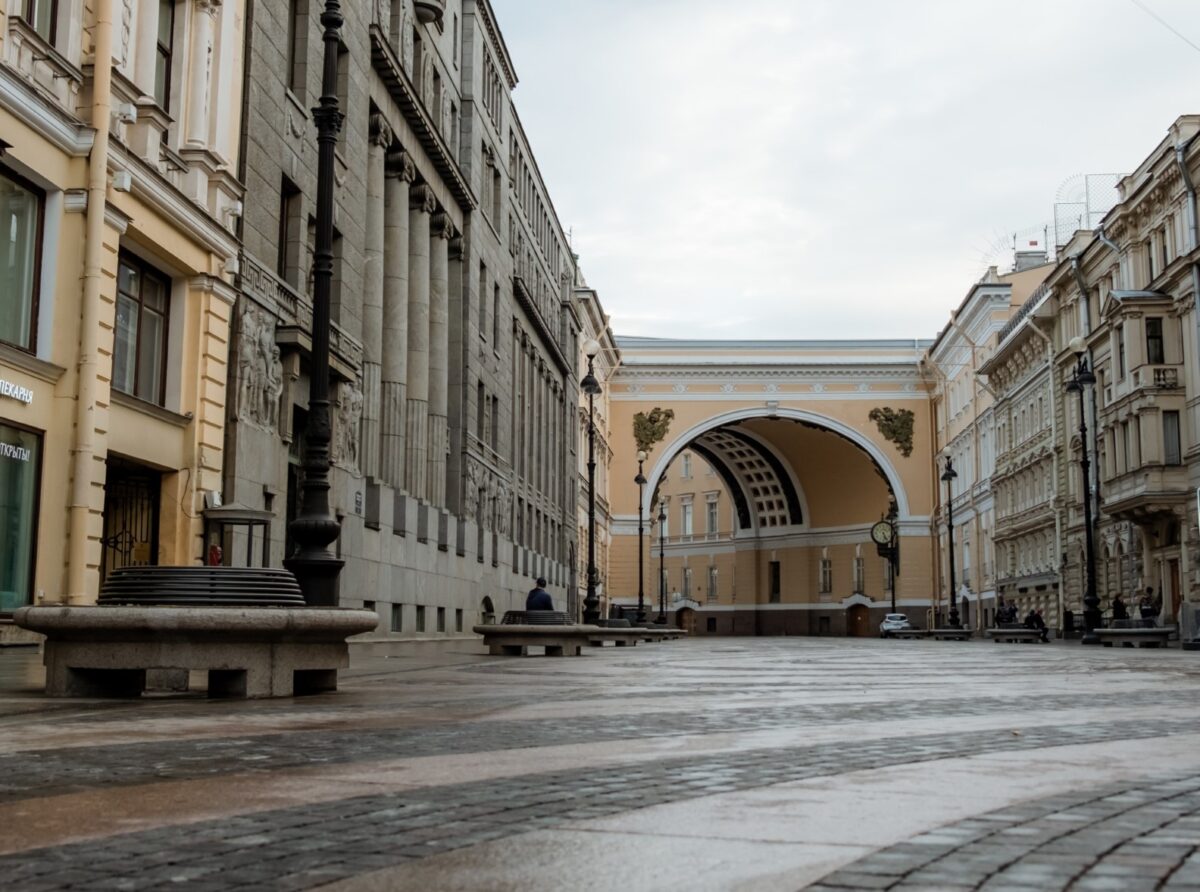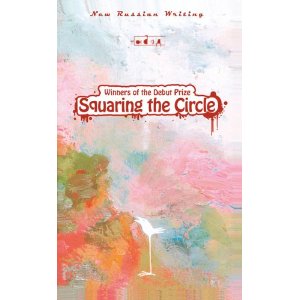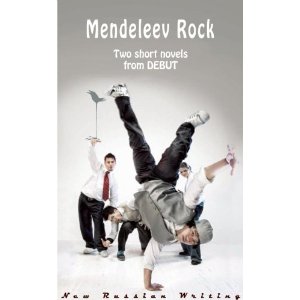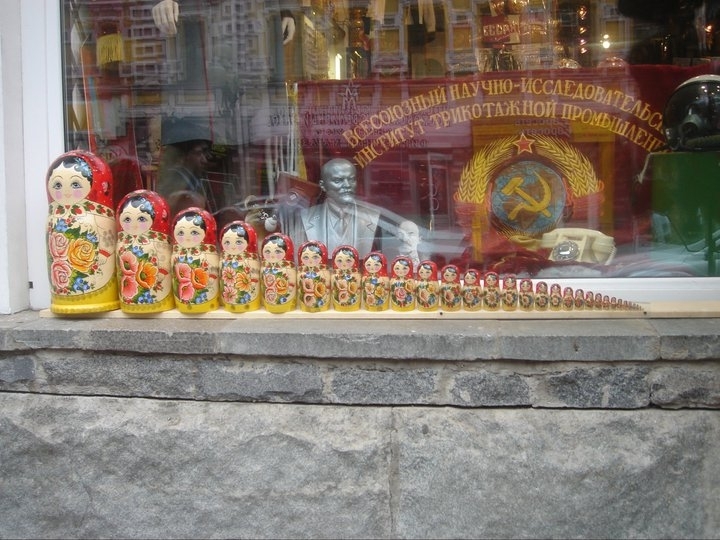
Following is an excerpt from the chapter “A Manual on Levitation” from the 2010 novel Ostromov, ili uchenik charodeiia: posobie po levitatsii, (Ostromov, or the Sorcerer’s Apprentice) by Dmitrii Bykov. In 2010, the work was awarded “Best Form” by the Ukrainian literary organization Portal, which consists of authors, publishers and editors. It was the best-selling book in Russia throughout 2011.
Translated by Kristina Uvarova
Edited by Michael Marsh-Soloway
A Manual on Levitation
Aleksey Alekseevich Galitsky was a hopeful man and it ruined him. Until 1918 he played in Berk’s private theater, but Berk left and the theater was closed. It was easier for Galitsky than for many: he did not have to provide for a family, preferring the comforts of a bachelor and non-burdensome contacts to the shackles of a household. In 1918 he was 48 years old, robust, and, as they said, trustworthy. His search for income led him to a group of lecturers, PCCMS (PECUCU) – The Petrograd Commission of Cultural Management of Scholars, founded by the passionate propagandist of the spoken word, Tabachnikov. Tabachnikov proposed that since oral language is easier to master than written language, all teaching in the schools of the victorious proletariat should be converted to verbal lectures on all branches of knowledge, but especially on reading aloud, and for this Galitsky proved indispensable. He was there, rain or shine, he started in the high school and university classes, but then, when Tabachnikov expanded his power, he went to the factory workers; his voice rose, he wheezed, and Galitsky read.
It was certainly a joyless activity. Aleksey Alexeyevich never admitted it to himself, boasting to his friends that an audience always filled him with gratitude and energy. But it was hard to read to children or workers, especially in long, cold halls with dusty windows. The new repertoire consisted mainly of verses by the proletarian poet Kirillov, which were long and passionate, like bright red ribbons. The verses didn’t affect the audience, and yet they were disagreeable to him, and even the old people almost completely fell into illegality. He departed from the routine and instead mastered the compositions of Balmont and Minsky, who had enough red ribbon in their time. But he managed to drag a love letter, no more than five verses. The rest of the time the proletarians were sleepily fixed, as they are always tired after any work.
But he was so happy to return home on foot through the sleeping city, where for some reason he did not meet a single one of the legendary thieves about whom there was so much gossip. Aleksey Alekseyich walked through the snowy Petrograd, the fair city without lights, and read everything he wanted to the frozen drifts. These returns were saved only by his blessed memory and the readings in front of proletariat he completely forgot. They provided him with a poor ration and it was all that was required of them. Well, sometimes he appeared grateful in the proletarians’ eyes and even astonished, with which the love toward art always begins. And shortly somebody from among the grateful proletarians informed against him. They didn’t get together after the work day for listening about the old regime; and Tabachnikov set a great scandal for Aleksey Alekseyich.
He shouted that his innovative theory met unbridled resistance, that there is a necessity to read to the workers and not lyrics about the bouqu-u-u-ets (which Galitsky had never read in his life), but to give them basic knowledge, at least of physics, and in case the actors are too useless to read from a course on physics, then at least let us give them an unperturbed program, so that nobody acts audaciously! Aleksey Alekseyich felt that something important was not said and hence he grinned widely out of delicateness, submitted his resignation from PCCMS, and suggested that he should find other opportunities so that nothing terrible happens… In a minute Tabachnikov calmed down, became softer and even called him his dear friend, he shook his hand for a long time and swore to return Galitsky to his position as soon as the opponents of the oral reading calmed their villainous heat, and you know, took a deep breath.
So Aleksey Alekseevich remained without service, but as we know, he was a hopeful man, so he didn’t lower his head, and turned to Victor Petukhov the director of SHKURa number five, althought it was called the Grade A school on the Vyborg side. Petukhov was also an experimenter, but so was everybody else. Nothing was to be taught in simplicity, everything only with the help of an unprecedented methodology. So it seemed to Petuhkov that for proper assimilation one needs an active body, and in general he expressed that the memory of the body was stronger than that of the mind. Every physical law corresponded to its own physical exercise. Aleksey Alekseevich came to the Petuhkov and offered him his service. Already in the fall of 1919, he started teaching a course, where, with time, the comrades of SHKURa‘s members had been drawn. They not only put on “The Tale of Tsar Saltan”, and “The Flea”, but also took up Shakespeare. Of course, it had to all to be within the limits of the antimonarchical repertoire, just to strike social evils under the curtains, but Aleksey Alekseevich contrived here to twist his own evil, to read them Bryusov, and to see in their eyes…
What could be seen in the hungry yellow eyes of high school students in 1919? But it seemed to him that that his word was cascading upon a gentle soil, and indeed, as though a pair, hunted and hopelessly abased, began to bloom and even imitate something, Aleksey Alekseevich invited them to his home to drink carrot tea and to talk intimately, and several times, he was trusted to lead the lesson when the philologist was ill, but most unbearable was the demand of Petuhkov to sit during the reading of “Eugene Onegin”, so that the whole class also sat.
But there was such happiness to arrive home on foot in that wonderful hour, when the day declines into night, but it was still luminous and just above Petrograd stretched a carrot-tinged, no better to say apricot dawn! How pleasurable it was to read to the trusting booby, Anisimov, anything from a beloved work, noticing that he asked more and more meaningful questions! In everything, positively in everything, it was possible to find charm and meaning, and if you could look with uncomplicated eyes, Aleksey Alekseyich Galitsky could have been happy at this post, if Petuhkov had not committed an offense with something before the authorities and his school was dissolved. What’s more, the dejected Anisimov and Malakhov, who had just understood and committed something to memory, went to work: one of them to the depot, another one to the Trotsky tobacco factory, and there they were immediately destined to forget everything that they were taught by the eccentric artist.”
Disclaimer
Translations of the excerpts from the works of modern writers are made for the educational purposes only.







